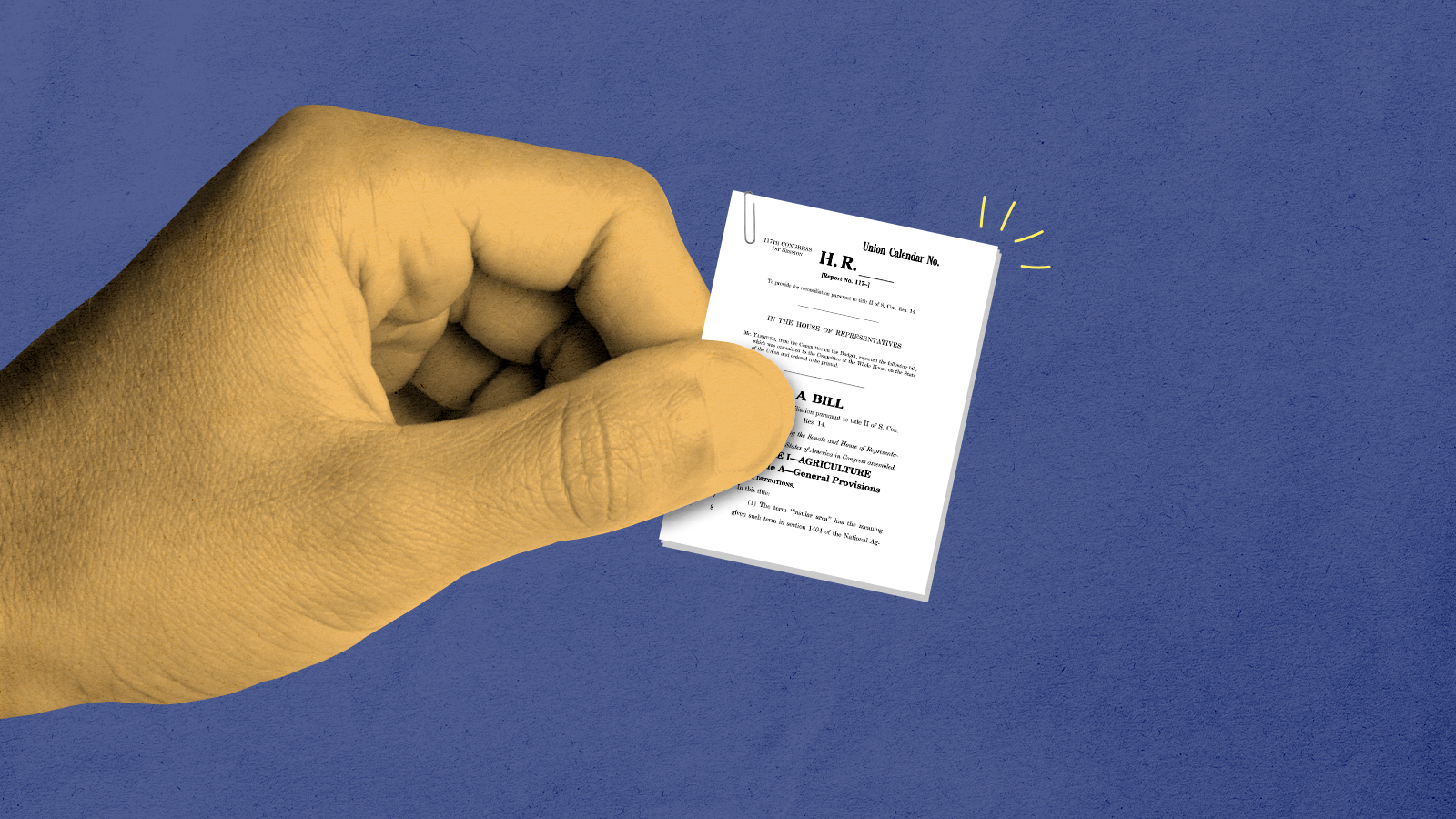Democrats are right to 'do fewer things well'


A free daily email with the biggest news stories of the day – and the best features from TheWeek.com
You are now subscribed
Your newsletter sign-up was successful
It took awhile, but Democrats are finally setting some priorities.
As has become clear over the last few weeks, Congress will not pass a $3.5 trillion reconciliation bill — $1.5 to $2 trillion is more likely. Democrats have debated how to respond to that reality, and on Monday, House Speaker Nancy Pelosi (D-Calif.) opted for a prudently narrowed approach. "Overwhelmingly," she wrote to colleagues, "the guidance I am receiving from members is to do fewer things well so that we can still have a transformative impact on families in the workplace and responsibly address the climate crisis."
We'll see how this works out. Pelosi and her colleagues haven't decided what "fewer things" will be in the final proposal, but choosing some priorities means not choosing others. The process of deciding who wins and who loses while keeping Democrats unified enough to pass a bill will be tricky. Still, "doing fewer things well" is the right approach, for two reasons.
The Week
Escape your echo chamber. Get the facts behind the news, plus analysis from multiple perspectives.

Sign up for The Week's Free Newsletters
From our morning news briefing to a weekly Good News Newsletter, get the best of The Week delivered directly to your inbox.
From our morning news briefing to a weekly Good News Newsletter, get the best of The Week delivered directly to your inbox.
First, launching any major new program can be challenging, and doing it badly can fuel a backlash against even the best-intentioned plans. When ObamaCare launched in 2013, the Healthcare.gov website crashed within two hours. It's no coincidence public approval for the program didn't really solidify until Republicans tried and failed to repeal it in 2017. It's easier to look (and be) competent if you're not trying to do everything at once.
Second, doing fewer things will probably make those things easier to sell to voters. Right now, only about 10 percent of Americans feel they have a good idea of what's in the "Build Back Better" reconciliation bill. Progressives complain that the media has done a poor job explaining the proposal, but that's partly a function of there being so much to explain — paid family leave, free community college, affordable housing, and much, much, more. Narrowing their ambitions might be painful, but Democrats will probably find messaging the bill much easier.
While Pelosi and her caucus are choosing which proposals to preserve, they should keep an eye on what Americans actually want. A new poll shows 83 percent of the public wants the government to negotiate to lower prescription drug prices for Medicare beneficiaries, but so far a few centrist Democrats are blocking that effort. It's just one of many debates to come.
Doing fewer things well is a smart approach for the Democrats. Now they just have to choose the right things.
A free daily email with the biggest news stories of the day – and the best features from TheWeek.com
Joel Mathis is a writer with 30 years of newspaper and online journalism experience. His work also regularly appears in National Geographic and The Kansas City Star. His awards include best online commentary at the Online News Association and (twice) at the City and Regional Magazine Association.
-
 The ‘ravenous’ demand for Cornish minerals
The ‘ravenous’ demand for Cornish mineralsUnder the Radar Growing need for critical minerals to power tech has intensified ‘appetite’ for lithium, which could be a ‘huge boon’ for local economy
-
 Why are election experts taking Trump’s midterm threats seriously?
Why are election experts taking Trump’s midterm threats seriously?IN THE SPOTLIGHT As the president muses about polling place deployments and a centralized electoral system aimed at one-party control, lawmakers are taking this administration at its word
-
 ‘Restaurateurs have become millionaires’
‘Restaurateurs have become millionaires’Instant Opinion Opinion, comment and editorials of the day
-
 Why are election experts taking Trump’s midterm threats seriously?
Why are election experts taking Trump’s midterm threats seriously?IN THE SPOTLIGHT As the president muses about polling place deployments and a centralized electoral system aimed at one-party control, lawmakers are taking this administration at its word
-
 ‘The forces he united still shape the Democratic Party’
‘The forces he united still shape the Democratic Party’Instant Opinion Opinion, comment and editorials of the day
-
 How are Democrats turning DOJ lemons into partisan lemonade?
How are Democrats turning DOJ lemons into partisan lemonade?TODAY’S BIG QUESTION As the Trump administration continues to try — and fail — at indicting its political enemies, Democratic lawmakers have begun seizing the moment for themselves
-
 How are Democrats trying to reform ICE?
How are Democrats trying to reform ICE?Today’s Big Question Democratic leadership has put forth several demands for the agency
-
 Democrats push for ICE accountability
Democrats push for ICE accountabilityFeature U.S. citizens shot and violently detained by immigration agents testify at Capitol Hill hearing
-
 Big-time money squabbles: the conflict over California’s proposed billionaire tax
Big-time money squabbles: the conflict over California’s proposed billionaire taxTalking Points Californians worth more than $1.1 billion would pay a one-time 5% tax
-
 Democrats win House race, flip Texas Senate seat
Democrats win House race, flip Texas Senate seatSpeed Read Christian Menefee won the special election for an open House seat in the Houston area
-
 Did Alex Pretti’s killing open a GOP rift on guns?
Did Alex Pretti’s killing open a GOP rift on guns?Talking Points Second Amendment groups push back on the White House narrative
